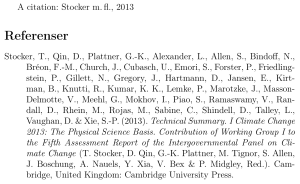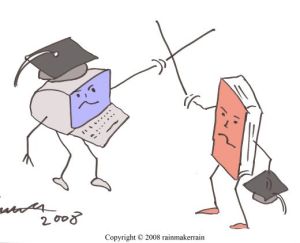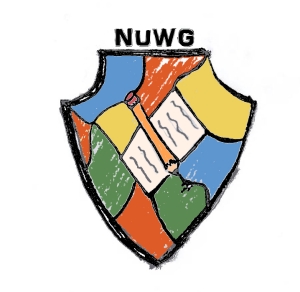Morphosyntactic Research Project
Dumankhan Abdashim.
2021
I selected the Kazakh language to research from the viewpoint of morphosyntax. First of all, this is because the Kazakh language has a direct relation with my ongoing dissertation work. The dissertation has a working title of ‘The mutual intelligibility of Kazakh dialects in Kazakhstan’. The dissertation studies the comprehensibility of dialects in Kazakhstan and combines two disciplines like linguistics and sociolinguistics. Secondly, because the Kazakh language is my mother tongue and I had an opportunity to investigate it from the grammar perspective. The main goal of my research project is to create a brief morpho linguistic description sketch of the Kazakh language.
Choosing a target language.
The next chapter of this research paper describes and illustrates with examples how the major morphosyntactic phenomena are expressed in the Kazakh language.
Responding to questions concerning the morphosyntactic phenomena
Demographic and ethnographic information
To outsiders, my language is known as the Kazakh language. The same term is recognized by Kazakh people. It is original form is Қазақ тілі (Qazaq tily). It is worth mentioning that apart from that Kazakh people call themselves Қазақия (Qazaqiya) literally translated as Kazakh country as in Zeynelgabiden’s work Насихат Қазақия (Nasihat Qazaqiya) (Baitanuly, 2017) Алаш (Alash) as President Tokayev (2021) noted that the word “Alash” is always a sacred concept for Kazakh people, Көк бөрі ұрпақтары (Kok bory urpaqtary) “descendants of the blue wolf” as in a poem of popular Kazakh writer Suyinbay Aronuly (n.d). However, those titles are mainly used for nationality rather than the Kazakh language. People do not use a specific term to distinguish the Kazakh language from other Turkic languages. The main reason for that is supposedly the Kazakh language is one of few languages from the Kipchak-Nogai branch (the closest relatives are Karakalpak and Nogai languages) of Turkic languages (unlike many Oghuz branch languages like Turkish, Turkmen, and others).
The Kazakh language is spoken throughout the country by the majority of the population. It is important to mention that there is a high percentage of Russian speakers as well. So many Kazakhstanis use both languages peripherally as needed. Of course, the percentage of the Kazakh language varies greatly from region to region, depending on the ethnic diversity of the population (higher percentage of speakers in the South and West, a lower percentage in North and East (due to the borders with Russia)).
Kazakhstan has a course towards implementing trilingual (Kazakh, English, and Russian) policy in education. Thus, in social and economic interactions with other languages speakers of the mentioned languages are privileged in Kazakhstan. The minority language speakers are also provided some opportunities to practice their languages, for instance, there are schools with Uzbek medium of instruction in the Turkestan region and Dungan medium of instruction in the Zhambyl region. The sociolinguistic situation of the Kazakh language seems to be Kazakhifying recently. The ongoing shift to the Latin alphabet, a new generation that has no common history and direct relation to the USSR and Kazakh content popularity in social media, has played its role in downgrading the role of the Russian language in Kazakhstan.
While writing my dissertation work on Kazakh dialects I came across the ideological concern (Nazarbayev (2013) once claimed that the Kazakh language is seen as a ‘unifying factor’) that there are no dialects in the Kazakh language and that the language is comprehensible around Kazakhstan. My personal observations also show that once you touch upon the issue of dialects the perception of Kazakh speakers changes negatively. However, as we know from Payne (1997) “variation is a fact of every language”. As an observer and as a speaker of the Kazakh language I can see that there are certain differences between Kazakh spoken in different regions. Out of many sociological variations, geographical or regional factors seem to be more visible in the case of dialects of Kazakhstan. That is why I am aiming to add knowledge and academic evidence to the field of dialects in Kazakhstan. Compare dialect sentences from different regions below. Western Kazakh dialect sentence:
- Өй қасқа! Әйдік бола тұра, көпшікке де сымына да секер жұқтырып алыпты.
Oi kaska! Aydik bola tura, kopshikke de symyna da seker zhuktyryp alypty
What a shame adult being pillow and trousers sugar spilled
‘What a shame, despite being an adult, he spilled sugar to the pillow and to his trousers.’
Southern Kazakh equivalent dialect sentence:
- Өлә! Дәу боп ап, жастыққа да шалбарға да құмшекер төгіп алыпты.
Ola! Dau bop ap, zhastykka da shalbarga da kumsheker togip alypty
What a shame adult being pillow and trousers sugar spilled
‘What a shame, despite being an adult, he spilled sugar to the pillow and to his trousers.’
Both sentences sound absolutely different, yet their meanings and grammar structures are identical. In the next chapter, I will write about morphological typology in the Kazakh language
Morphological typology
The Kazakh language is agglutinative and it is dominantly suffixing. For example, the word consists of different morphemes Мектеп-тер-іңіз-ден literally translated as Schools-plural-your-from.
(3) Мектептеріңізден
Mektepterinizden
‘From your houses’
There are major and secondary patterns in the Kazakh language as well. For instance, the initial form of бару (bar-u) ‘to go’ is modified like барды (bar-dy) ‘went’, барады (bar-ady) ‘will go’. Reduplication examples in the Kazakh language are like үп-үлкен (up-ulken) meaning ‘very big’ where the stem word (үлкен) comes second, аз-аздан (az-azdan) ’little by little’ it is when the stem word (аз) comes first, ақырын-ақырын (akyryn-akyryn) meaning ‘slowly-slowly’ in this case the stem is duplicated in the original form. There seems to be not much data to similar-to-English (e.g. to be becoming am, is, are) suppletion examples in the Kazakh language. What is unique about the Kazakh language is that it can be both head or dependent marking. For instance, in the phrase: Сүлгі Динараныкі (Sulgi Dinaranyki) ‘The towel belongs to Dinara’ and it can also be used vise versa like Динараның сүлгісі (Dinaranyn sulgisi) ‘Dinara’s towel’. In the next chapter, I will discuss grammatical categories in the Kazakh language.
Grammatical categories
A noun зат есім (zat esim) in the Kazakh language is a word that means the name of an object, thing, phenomenon, event. Morphological features of a noun in the Kazakh language are as follows: simple жалаң (zhalan) and complex күрделі (kurdeli) nouns. Simple nouns are identical to English nouns, whereas complex nouns in Kazakh are subdivided into 4 groups:
1. Compound nouns (complex) – қолқанат (kolqanat) scarecrow (literally arm + wing)
2. Double nouns (pairs) – ата-ана (ata-ana) parents (literally grandfather-mother)
3. Combined nouns – аяқ киім (ayak kyim) shoes (literally foot + dress)
4. Abbreviated nouns – ҚР (KR) as in Republic of Kazakhstan (Unknown, 2019)
The roles of nouns in Kazakh sentences primarily are as follows: it serves as a subject of a verb, an object of a verb, and a complement of a verb, and nouns can also be an object of a preposition.
The sentence structure in Kazakh constituent order typology follows the structure of S+O+V, unlike the Russian or English formation. For example,
(4) Мен жағажайға барамын
Men zhagazhayga baramyn
I beach to go
‘I go to the beach’
Discussing Modifiers, adjectives – сын есім (syn esim), Adverb – үстеу (usteu), and verb – етістік (verbs) there are many similarities (even in terms of pronouns like you in English, the same applies to the single word сіз (siz) you, where it is used to refer to the speaker it is addressed and in a respective to elders) and not many unique distinctions from the general grammar of other languages.
The Kazakh language has one grammaticalized comparative construction. It is by adding suffixes – арақ, – ірек (as in the sample below үлкен-ірек), depending on the vowel before the suffix. For instance,
(5) Менің добым сенікінен үлкенірек
Menin dobym senikinen ulkenirek
My ball your bigger
‘My ball is bigger than yours’
The next chapter of this research paper describes many other features of the morphosyntactic sketch in the Kazakh language.
The other features of the morphosyntactic sketch in the Kazakh language.
The Verb phrase in the Kazakh language might have a complex structure. For instance, in the phrase:
(6) бітпей жатып кетті
Bitpey zhatyp ketty
Not finished lying gone
‘(Someone) has gone before (something) was finished’
So, we see here that when we look at the verbs separately, they do not have meaning, but when combined as a phrase they become meaningful. Using three separate verbs in one phrase might be a unique case with the Kazakh language.
Comparatives in the Kazakh language are structured in this way:
(7) ақылды – ақылдырақ – ең ақылды
akyldy – akyldy-rak – en akyldy
‘smart – smarter – the smartest’
We see that the initial form of an adjective is ақылды, it becomes ақылдырақ by adding the suffix – rak, and in the superlative form the prefix en is added, as in the sample ең ақылды. In terms of prepositions and postpositions, there are not many uniques words in the Kazakh language, however, there are some Arab rooted words appearing in sentences, such as яки (yaki) meaning or ләкин (lakin) which means, however.
Question particles in the Kazakh language are formed by adding endings – ма?, – ме?, – ба? – бе? – па? – пе?. For instance,
(8) Таңғы ас ішесің бе?
Tangy as ishesin be?
Morning meal drink
‘Will you have breakfast?’
Compounding nouns are widely used in the Kazakh language. There are some compounding examples:
(9) ата-ана, салт-дәстүр
ata-ana, salt-dastur
‘Parents, tradition’
Denominalization is also a widely used phenomenon in the Kazakh language. Below are the denominalization examples:
(10) тергеуші-тергеу, оқушы-оқу
Tergeushy-tergeu, okushy-oku
‘Investigator – to investigate’, ‘student – to study’
As we see, the ending of a noun is dropped to make a word verb, thus processing a denominalization.
Numbers in the Kazakh language are listed in order of size, the biggest ones read first. For instance,
(11) 10500 is read like он мың бес жүз
On myn bes zhuz
‘Ten thousand five hundred’
The ordinal numbers in Kazakh are formed by adding the suffix –інші to the root of the number. This is
(12) бір-інші, үш-інші
Birinshy, ushinshy
‘First, third’
Unlike English, there are no articles in the Kazakh language. Determiner this has different variations in different regions. Thus, the original translation and standard form of the word would be мынау (mynau)
(13) in South мыняқ, in West мынжақ, in Central Kazakhstan мұнда
mynyak, mynzhak, munda
‘this’
As of demonstratives, the Kazakh language has similar to English words to refer to “near” and “far” (мынау – mynau – this, анау – anau – that, мыналар – mynalar – these, аналар – analar – those)
Instead of putting possessive -‘s as in English, in Kazakh we put suffixes –дыкі, -тыкі and -ныкі to show possessive clause
(14) Үй Думандыкі
Ui Dumandyki
‘Duman’s house’
The next chapter of this research paper describes predicate nominals and related constructions related to the Kazakh language.
Predicate nominals and related constructions
I could not find information regarding predicate nominals, adjectives, locatives, and existentials in the Kazakh language from available sources. I will point this out in the Limitations chapter of this paper.
One aspect worth mentioning in pragmatically marked structures of the Kazakh language is non-declarative speech acts.
Here is an example of an imperative sentence (command)
(15) Оңға бұрыл.
Onga buryl.
‘Turn right.’
Sometimes imperative sentences can have exclamation marks at the ending of the sentence.
An interrogative sentence in the Kazakh language looks like this:
(16) Ол неге кешікті?
Ol nege keshikty?
‘Why was he late?’
An exclamative sentence in the Kazakh language looks like this:
(17) Туған күніңмен, Динара!
Tugan kuninmen, Dinara!
‘Happy birthday, Dinara!’
The clause combinations of the Kazakh language are typical of regular grammar in other languages. Let me give you an example with an adverbial clause in the Kazakh language as an illustration.
(18) Егер жаңбыр жауса, ұйықтаймыз.
Eger zhanbyr zhausa, uiyktaimyz
‘If it rains, we will sleep’
The following chapter discusses all the major limitations while writing the research paper for this course.
Limitations
There were certain limitations in writing this paper. Due to the scarce academic literature and lack of accessible previous research in the morpho linguistic area of the Kazakh language, from time to time I had to rely on some secondary source materials. Even then, it was really challenging to find reliable information on some aspects of morphosyntax (i.e. predicate nominals and others). This in turn affects the quality of the paper. In addition due to the COVID restrictions, it was challenging to access all the facilities required for writing this paper. Thus, the meeting with Kazakh language experts, accessing University and city libraries were limited and delayed regularly.
Conclusion
The language in use
Concluding this paper I would like to touch upon genres in the Kazakh language. The discourse genres that are distinct in the Kazakh language are Folk Stories and Narratives. At the beginning of the paper, I mentioned that Kazakhs call themselves the descendants of the blue wolf, this statement itself comes from folklore. Academician Mukhtar Auezov suggests that the Kazakh Folk Stories is divided into the following types:
1. Heroic folk;
2. Lyro-folk;
3. Historical folk;
4. Real-historical folk. (Baitanuly, 2020)
Speaking of narratives, the Kazakh language is popular for its oral features, and retelling the narratives plays an important role in the Kazakh language. Aitys is a bright representation of the narrative genre. Two performers in the Aitys contest are competing against one another in oral form using dombyra (Kazakh national; music instrument) and singing verses (Aitysh, 2015). They discuss different important topics for the nation mostly in a humorous way.
I find the historical features of the Kazakh language particularly interesting. I once wrote a blog on the history of the Kazakh language and found that during the period of 1920s and 1940s the alphabet of the Kazakh language was changed three times. Due to that fact that period was called Тар Заман (Tar Zaman) a time of challenge for the Kazakh language. In the 1920s Kazakhs used Arabic writing for their alphabet. Arabic writing was replaced by Latin script at the beginning of the Soviet era. After a while, the Kazakh Latin script was adapted to the Cyrillic alphabet (Abdashim, 2017). This period shaped the contemporary morphosyntax structure of the Kazakh language. The Kazakh language did not present any typological surprises. I am planning to continue researching the morphosyntax, lexical, and semantics aspects of Kazakh language dialects as part of my future dissertation research “The mutual intelligibility of Kazakh dialects in Kazakhstan”.
Returning to the primary aim of this paper I attempted to create a brief morpho linguistic description sketch of the Kazakh language. As a culturally relevant discourse sample and as the last point of this paper I would like to provide an original poem by famous Kazakh poet Kadyr Myrza Ali who writes about the importance of appreciating your mother tongue. The main message of the poem is that you should respect your mother tongue and encourage yourself to learn other languages.
Ана тілің біліп қой, (Ana tilin bilip koy,)
Еркіндігің, теңдігің. (Yerkindigin, tendigin)
Ана тілің біліп қой, (Ana tilin bilip koy,)
Мақтанышың, елдігің. (Maktanyshyn, yeldigin)
Ана тілің – арың бұл, (Ana tilin – aryn bul,)
Ұятың боп тұр бетте. (Uyatyn bop tur bette.)
Өзге тілдің бәрін біл, (Ozge tildin barin bil,)
Өз тіліңді құрметте!(Oz tilindy kurmette!)
Despite that the verses might seem easy to perceive, it is another culturally relevant discourse sample and quality of Kazakh language that with seemingly simple verses it can deliver deep and thought-provoking ideas from generation to generation.
In this paper, I have touched on some moments from history where the Kazakh language had to struggle (e.g Tar Zaman). The situation seems to be better now. As it was asked in the conclusion part of Payne’s (1997) work I would like to discuss some interesting points, features, and my personal observation in the final part of the paper. For the last three decades since our Independence, the Kazakh language has had its own ups and downs.
In 1995 Kazakhstan’s government made some attempts to make the Kazakh language an official language, however, the attempt failed because the population was not ready to switch and become a monolingual country. Especially after it was Russian dominant for the last 70 years (1921-1991). This was a period where only one Kazakh medium was left in the whole country in the middle of the 1960s. That was a language catastrophe that changed the linguistic landscape. There were always local clashes between Russian and Kazakh language speakers. The situation varied sharply from region to region as well. Only in the last 10 years it seems that the Kazakh language gained power and finally started to become the main language of the country. However, this process happens step by step and naturally, despite the attempts of Kazakh nationalists to make an instant impact.
Nationalists had always fought for the ‘purity’ of the Kazakh language. Yet it was the minimum of dialogue between the government, scholars, and population that made the situation complicated. Even nowadays many people believe that the population has to speak ‘pure’ Kazakh language. A lot of clarifications should be conducted, as still people negatively perceive people who intentionally or unintentionally code miz between Kazakh and Russian. The term Shala Kazakh (literally half Kazakh) is still applied to Kazakh people not so much fluent in Kazakh as others. People have a tendency to judge non-Kazakh speakers, consequently making the hatred towards not learning the Kazakh language even bigger.
There are also some ideological points related to the Kazakh language in itself. For instance, because of the belief in the Kazakh language purity, many people refuse to even raise the mutual intelligibility concerns of Kazakh dialects. People should be open to questions and doubts to learn more and be knowledgeable. My current hypothesis is that there are certain differences in words in different regions of Kazakhstan. However, what about the sentence level? I personally do not understand the Western words, but would I be able to read and understand text in the Kazakh variations of those regions. Are there differences in the morphology, syntax of those Kazakh dialects because of many factors impacting and exposing them. Those are all questions for further research.
References
Abdashim, D. (2017). ‘Tar Zaman’ – A story of my Kazakh language. Retrieved from
Aitysh/Aitys, art of improvisation. (2015). Retrieved from
https://ich.unesco.org/en/RL/aitysh-aitys-art-of-improvisation-00997
Ali, K, M. (n.d). Ана тілің – арың бұл [Your mother tongue – is your pride]. Retrieved from
https://stan.kz/til-turali-7-olen-335980/
Aronuly, S. (n.d). «Халықты тілмен қорғадым» [I defended the people with my tongue].
Retrieved from https://anatili.kazgazeta.kz/news/32834
Baitanuly, A. (2017). Насихат Қазақия зерттеуді қажет етеді… [Nasihat Qazaqiya needs
investigation…]. Retrieved from http://88.204.166.7/kz/news/view/3207
Baitanuly, A. (2020). Қазақ фольклорының қалыптасу тарихы туралы. [On the history of the
formation of Kazakh folklore]. Retrieved from https://adebiportal.kz/kz/news/view/22923
Max Planck Institute for Evolutionary Anthropology, Department of Linguistics. (2015). The
Leipzig Glossing Rules: Conventions for interlinear morpheme-by-morpheme glosses. Available online at https://www.eva.mpg.de/lingua/pdf/Glossing-Rules.pdf
Payne, T. (1997). Describing Morphosyntax: A Guide for Field Linguists. Cambridge and
New York: Cambridge University Press.
Tokayev, K. (2021). Президент Қасым-Жомарт Тоқаев Алаш қайраткерлеріне арналған
ескерткіштің ашылуына қатысты [President Kassym-Zhomart Tokayev took part in the opening of the monument to Alash figures]. Retr ieved from https://www.akorda.kz/kz/prezident-kasym-zhomart-tokaev-alash-kayratkerlerine-arnalgan-eskertkishtin-ashyluyna-katysty-463334
Unknown. (2019). Зат есім [Noun] Retrieved from
http://megamozg.kz/index.php?page=view_mat&id=3238&partition=other&subpartition=articles_kazakh





